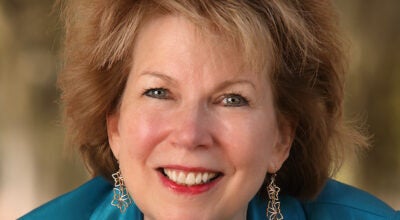Hicks Foundation events celebrate Black History Month, 50th anniversary of Civil Rights Act
Published 1:15 am Wednesday, March 19, 2014
The Robert “Bob” Hicks Foundation extended Black History Month into March with an event that celebrated both the 50th anniversary of the Civil Rights Act and the contributions of local participants in the movement while providing inspiration for today.
In a powerful program at Bethlehem Baptist Church, the foundation put the spotlight on the student winners of its Civil Rights Expressions contest and provided a dais for speakers of national note, including Lisa Frazier Page, a Bogalusa native who is an author and reporter for the Washington Post; Enimini Ekong, Chief of Interpretation and Education with the National Park Services of Little Rock Central High School National Historic Site, and Keith Plessy, a descendent of one of the parties in the landmark U.S. Supreme Court Plessy vs. Ferguson decision.
In a room filled with samples of the creative works of current students, who were all encouraged to learn the local history and then express their feelings through the written word, visual art or performance, and of Bogalusa masters like the late Alvin Carter, the foundation, which is working to establish a Civil Rights and Cultural Museum in Bogalusa, offered a reminder and a call to continue the fight for a better tomorrow.
Ekong and Plessy both spoke in support of the museum. Ekong said that if dedicated supporters throughout Washington Parish continue to work on the project, the possibilities are limitless because the nation is now moving toward the preservation of historic civil rights sites that have long been overlooked.
Valeria Hicks, the widow of Robert Hicks and fellow Civil Rights activist, then introduced Page. Their daughter, Barbara Hicks-Collins, the foundation’s executive director, was impressed with what she heard.
“Ms. Page not only delivered a powerful speech, she did what she does best,” she said. “She authored a message on our past, present and future.”
Page acknowledged Robert Hicks, A.Z. Young, Charles Sims, Gayle Jenkins and others who “kicked down the doors of opportunity for us,” and she urged people to continue acting to make a positive difference.
She pointed to the struggling Bogalusa City School System and asked, “Where is our outrage?”
“There is no need to point fingers because we all share in the blame, and so we all need to be part of the solution,” Page said. “We need to try to figure out how we can partner with teachers in our children’s success. We have to decree and declare, that our children will not be statistics.
“When I think of what we can become, I think of my children and your children. They are our hope of a better tomorrow, just as we were that for our parents.”
She further challenged those in attendance to take action.
“What we as a people, what we as a community, can become depends on you,” Page said. “Our future depends on you. If for a moment you think that is too much pressure, think about what Robert Hicks and Gayle Jenkins and A.Z. Young and Charles Sims and all the others endured so that you can have every opportunity to succeed.”
And she addressed the youth.
“We, as parents and as a community, owe you a good education, an education that prepares you to compete in a society that will be made up of children all over the world,” Page said. “We owe you that, and we can do better. But you, students, have a responsibility, too, to receive it, and make the most of it, and do your best.
“The route to your future has been paved in blood, and how dare you, how dare you not give your best? We as your parents, your neighbors, and your community are here to guide and support you. We see you. We believe in you. And, most importantly, we need you.”
At the closing, Hicks-Collins, who planned and facilitated both the March event and the Expressions contest and program, was exhausted, but strong and empowered.
She quoted essay winner Rashard Smith and young Brian Jenkins, who sang.
“I know and understand the significance of why we marched,” Hicks-Collins said. “And sometimes you have to (find ways to) encourage yourself.
Then she vowed to continue the efforts to make the community strong.
“Our fathers and forefathers never stopped to rest or gave up trying to make it possible for us to have a better life,” Hicks-Collins said. “So how dare me waste time resting when there is a generation that still needs to be guided and supported?
“How can I, or anyone, lay down the torch handed down from people who opened doors of opportunities for this generation to have a better life? I cannot rest when there is still work to be done, and a generation to educate and empower.”
She thanked everyone who has supported the work of the Hicks Foundation and said it will host another event this summer.





